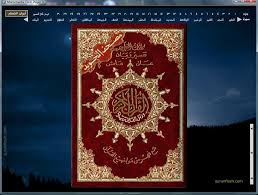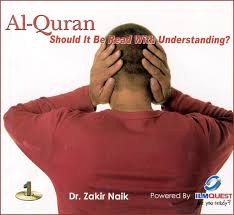Al Aala-Surat 087-Huthaify
Mishary Rashid Al Afasi- Surah Al A'la ( Learning Version)
Chapter 87 : Surah Al-A'la
(Revealed before Hijrah)
Date of Revelation and Context
The Surah was revealed very early in the Holy Prophet's ministry at Mecca. Besides most Commentators of the Qur'an, Muir and Noldeke hold this view; the latter (Noldeke) places its revelation after Chapter 78, while some Muslim scholars assign it the eighth place in the chronological order of revelation of the Qur'an. The preceding Surah had ended on the note that the Qur'an is a complete and perfect code of Divine laws, fully capable of meeting the needs and requirements of all mankind; and that at no time will it be subject to change, abrogation or interpolation. This Quranic claim gives rise to the natural and inevitable question, viz., where was the need of a new Reformer to whom reference has been made in the preceding several Chapters in the presence of such a complete and perfect revelation? The present Surah answers this important question.
It was further stated in Surah AI-Tariq that the development of man is subject to alternate periods of rise and fall. This fact again gives rise to another equally important question, viz., that after the revelation of a Law, complete in all respects, man's progress should naturally become uniform and uninterrupted and immune against all possibility of retrogression. This being so, why was a complete Shari'ah not revealed in the beginning of the world; why was it deferred till the time of the Holy Prophet? The Surah supplies an answer to this question also. It possesses another intimate connection with the preceding Chapter. In that Surah it was stated that man is born of a fluid which issues forth from the loins of his father and gets his sustenance from the breast of his mother. This constituted a subtle hint about the gradual process of man's physical development. We are told that like his physical development man's spiritual development is also gradual. The Holy Prophet generally recited this and the next Surah in the Friday and 'Id Prayers.
بِسْمِ اللَّهِ الرَّحْمَنِ الرَّحِيم
[1] In the name of Allah, the Gracious, the Merciful.
سَبِّحِ اسْمَ رَبِّكَ الأَعْلَى
[2] Glorify the name of thy Lord,[3320] the Most High,
الَّذِي خَلَقَ فَسَوَّى
[3] Who creates and perfects,[3321]
وَالَّذِي قَدَّرَ فَهَدَى
[4] And Who designs and guides,
وَالَّذِي أَخْرَجَ الْمَرْعَى
[5] And Who brings forth the pasturage,
فَجَعَلَهُ غُثَاءً أَحْوَى
[6] Then turns it black, rotten rubbish.[3322]
سَنُقْرِئُكَ فَلاَ تَنسَى
[7] We shall teach thee the Qur’an, and thou shalt forget it not,[3323]
إِلاَّ مَا شَاءَ اللَّهُ إِنَّهُ يَعْلَمُ الْجَهْرَ وَمَا يَخْفَى
[8] Except as Allah wills[3324]. Surely, He knows what is open and what is hidden.
وَنُيَسِّرُكَ لِلْيُسْرَى
[9] And We shall facilitate for thee every facility.[3325]
فَذَكِّرْ إِنْ نَفَعَتِ الذِّكْرَى
[10] So go on reminding; surely, reminding is profitable.
سَيَذَّكَّرُ مَنْ يَخْشَى
[11] He who fears will soon heed;
وَيَتَجَنَّبُهَا الأَشْقَى
[12] But the reprobate will turn aside from it,
الَّذِي يَصْلَى النَّارَ الْكُبْرَى
[13] He who is to enter the great Fire.
ثُمَّ لاَ يَمُوتُ فِيهَا وَلاَ يَحْيَا
[14] Then he will neither die therein nor live.
قَدْ أَفْلَحَ مَنْ تَزَكَّى
[15] Verily, he truly prospers who purifies himself,
وَذَكَرَ اسْمَ رَبِّهِ فَصَلَّى
[16] And remembers the name of his Lord and offers Prayers.
بَلْ تُؤْثِرُونَ الْحَيَاةَ الدُّنْيَا
[17] But you prefer the life of this world,
وَالآخِرَةُ خَيْرٌ وَأَبْقَى
[18] Whereas the Hereafter is better and more lasting.
إِنَّ هَذَا لَفِي الصُّحُفِ الأُولَى
[19] This indeed is what is taught in the former Scriptures —
صُحُفِ إِبْرَاهِيمَ وَمُوسَى
[20] The Scriptures of Abraham and Moses.[3326]
3320. The Divine attribute Rabb (Lord Who makes things grow and develop by stages) disposes of the objection: Why was the perfect Law not revealed in the beginning of creation? The word implies that perfect Law should have been revealed when man's intellect and reason had attained their fullest development which could and did take place after a long and gradual process of evolution.
3321. A high destiny awaits man. He can attain the highest spiritual stature and can reflect in his person Divine attributes so as to become the mirror of his Creator.
3322. The verse constitutes a subtle answer to the objection: Why did God first reveal incomplete Laws, suited only to the needs of the peoples and the periods in which they were revealed, and then towards the end revealed the last and most perfect Shari'ah in the form of the Qur'an? The answer is that God has created two kinds of things: (a) Those that like herbage and pasture satisfy man's temporary needs and thus have a limited tenure of life. The former Scriptures, like these things, fulfilled only man's temporary needs and, therefore, were subject to decay and death. (b) Those things such as the sun, the moon, the earth, etc., which are of permanent use for man. They will last till the universe lasts. The Qur'an is like the universe and is meant to be man's unerring guide till the end of time; hence it is immune to change, replacement and the wasting effect of time.
3323. The Holy Prophet was human and as such was apt to forget and he did forget things as far as the affairs of life were concerned. But God in His infallible wisdom had so arranged that though the Holy Prophet was not literate and that sometimes long Chapters were revealed to him in one piece, the revelation remained so indelibly imprinted on his mind that he was never found to forget or falter in reciting the revealed portions. It is marvellous, indeed, that very long Chapters such as AI-Baqarah, Al 'Imran and AI-Nisa', were revealed piecemeal, and a period of several years had intervened between the revelation of one piece and another and yet the Holy Prophet never; for a moment, fumbled or faltered in putting the revealed verses in their proper places. This is a fact which has not been disputed by even the most hostile critics of the Qur'an.
3324. The expression, 'as what Allah wills,' pertains only to matters of everyday life.
3325. The verse signifies: (a) That it is easy to commit the Qur'an to memory; (b) that its teachings possess an adaptability all their own which makes them conform to, and meet, the exigencies of changing conditions and circumstances and also the needs and requirements of men of different temperaments and dispositions; and (c) that Quranic injunctions are not arbitrary but wise and rational. These factors combined make the Qur'an a book easy to learn and to act upon. These, among others, are some of the means which God has provided for the eternal protection and preservation of the Quranic text and its meaning.
3326. Because the essential principles of all religions are basically identical, the teachings mentioned in the foregoing verses are also found in the Scriptures of Moses and Abraham. The verse may also signify that the prophecy about the appearance of a great Prophet who was to give to the world the last Divine Message and the most perfect Teaching is found in the Scriptures of Moses and Abraham (Deut. 18:18, 19 & 33:2).
http://www.alquran-karim.com/alA'la.html
source
:)
Hajiku 1435H / 2014, Insya-Allah
11 years ago










No comments:
Post a Comment